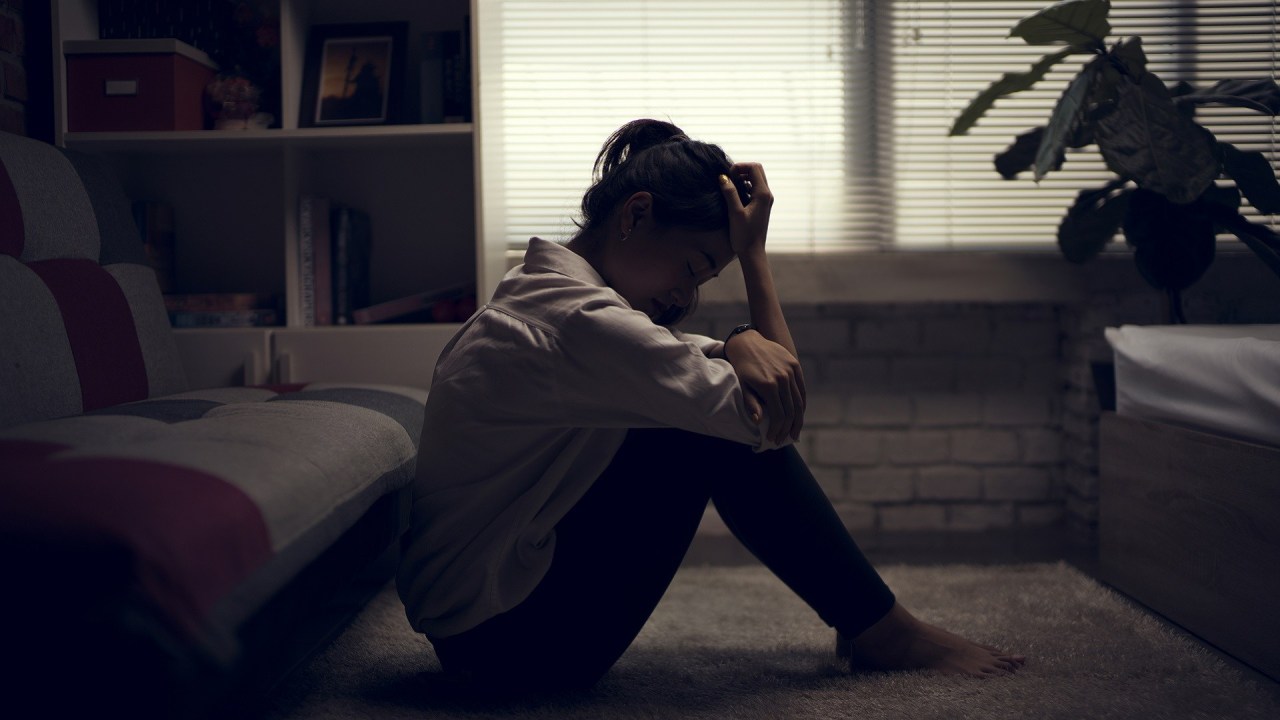What are the Symptoms of Depression?
Feeling down and sad occasionally is a normal part of life. However, when the despair and emptiness refuse to go, it may be depression. Depression can be simply defined as an illness affecting a person’s body, feelings, thoughts, behavior, mood, and physical well-being. It affects the way an individual sleeps and eats, the way he sees things, and most importantly, the way he thinks about himself. It must be clarified that depression is not a state which can be wished away or willed, and nor it is a sign of weakness.
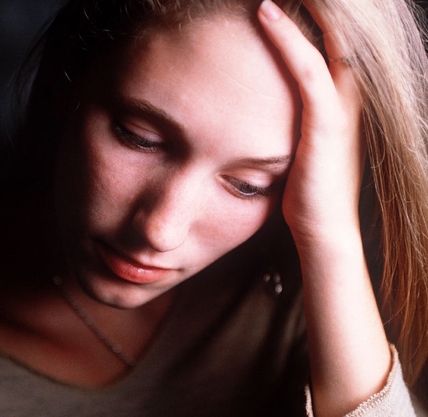
Types of depression
Similar to the other types of illness, there are several types of depression. Often, these types are distinguished from one another by their features, severity of symptoms, and duration. Some of the common types are briefly described below –
Major Depression – Major depression is one of the most common types of depression and is known to last for several weeks and months. It generally involves irritable or low mood and loss of pleasure and interest in the usual activities. It interferes with one’s daily functioning involving eating, sleeping, studying, and working. Episodes of such depression may occur once, twice, or several times during a lifetime.
Dysthymia – Also known as Melancholy, Dysthymia is less severe than major depression but lasts longer. One’s usual activities are not disrupted, but the type disables a person from feeling good. People suffering from Dysthymia may appear mildly depressed such that it seems to be a part of their personality. It must be mentioned that they are not aware of their condition, and live with it by constantly feeling dissatisfied, unimportant, sad, and frightened.
Bipolar depression – Bipolar depression, commonly known as Mania depression can be defined as an emotional state involving episodes of depression and mania. Cycling between the two periods can be frequent or a state of mania can exist without any episodes of depression. Sudden changes in the person’s behaviors are usual symptoms.
Postpartum depression – This is a rare type of depression, which occurs in women within one week to twenty-four weeks after delivering a baby. Symptoms like grief, irritability, sadness, despair, and crying are common among the sufferers after delivering.
Psychotic depression – Patients suffering from psychotic depression begin to see and hear imaginary things such as voices, sounds, and visuals, which do not exist. Patients are also known to develop false beliefs about themselves and the world. It must be mentioned that the illness is responsive to only physical treatment such as drugs.
Premenstrual depression – As the name implies, this type of depression attacks women before the onset of their menstrual cycle. This is a cyclic condition, and women may feel irritation and depression for one or two weeks before the menstrual period each month. It must be mentioned that the symptoms disappear following the full flow of menses.
Depress and Heart disease
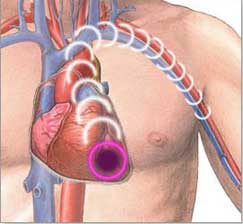
Researchers have revealed that depression and heart disease go hand in hand. In addition, each one of them can lead to another. It is quite common for people to be depressed after a cardiac procedure or surgery, heart attack, or even a diagnosis of heart disease. On the other hand, it has also been revealed that people suffering from depression are more likely to suffer from a heart attack in comparison to those who are free of all sorts of heart diseases.
Define some common Depression symptoms
Depression symptoms are known to vary from person to person and may last for weeks, months, and even years. The severity of the symptoms is also known to vary from case to case and over time. Few people may experience many symptoms, whereas some may just have few. However, it must be mentioned that the symptoms may even be a part of a person’s life, but the more is the number of the symptoms, the longer they last, and the stronger is their intensity, the more chances are that one’s dealing with depression. Below is a list of some of the common depression symptoms.
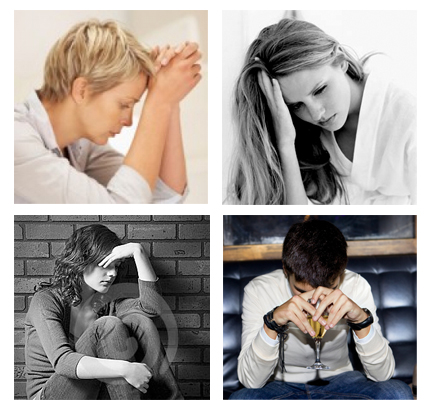
• Feelings of pessimism and hopelessness – Feeling of helplessness plagues the sufferer, and he tends to believe nothing can be done to improve the situation.
• Loss of pleasure and interest – The sufferer loses interest in pastimes, hobbies, social activities, including sex, which was once enjoyed. The ability to feel pleasure and joy is also lost.
• Reckless behavior – it is quite common for the sufferers of depression to engage in reckless behavior such as compulsive gambling, substance abuse, excess alcohol consumption, dangerous sports, and reckless driving.
• Social isolation – Depressed people are known to feel scared of being left alone, and thus avoid interacting with friends and family members.
• Insomnia – Insomnia or sleep changes are one of the most common symptoms. Sufferers may get up very early in the morning or tend to oversleep.
• Fatigue – Loss of energy and feeling of sluggishness can also be seen. The whole body may continuously feel heavy, and the execution of small tasks may take longer than usual.
• Changes in weight – Either significant gain or loss in weight may be visible along with changes in the diet.
• Unexplained body pains and aches – An escalation in body pains and aches such as back pain, headaches, aching muscles, stomach pain, etc. This may be accompanied by fever at times.
Treating Depression: What Treatment Actually Works?
There are several treatment options available for depression, including self methods, exercise, natural supplements, lifestyle choices, and medication. A treatment that may work amazingly for one might not show results in another case. Some of the common options are briefed below.
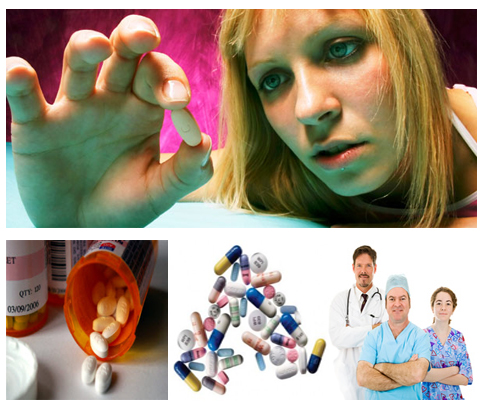
Psychotherapy – Various types of therapeutic approaches are often employed for the treatment of depression. These include behavioral therapy, interpersonal therapy, cognitive behavioral therapy, family and rational therapy, and more.
Medication – Antidepressant drugs are one of the most effective treatments for depression. It must be mentioned that these drugs usually come with certain side effects, and certain dietary restrictions may also have to be followed. In addition, the drugs are known to relieve the symptoms only leaving the underlying problem uncured. Medication treatment is best if taken along with another treatment.
Lifestyle changes – Lifestyle changes are another powerful tool in treating depression. Sometimes, it may be all that is needed. On the other hand, even if other treatments are being applied, lifestyle changes assist a lot in the long run. Lifestyle changes can be brought by regular exercising, eating a nutritious diet, reducing stress, sleeping properly, interacting with family and friends, seeking social groups, and reducing stress.
Relaxing techniques – Various relaxing techniques such as yoga, progressive muscle relaxation, meditation, deep breathing, are also known to relieve the symptoms of depression significantly. You can also read about A Quick Painless Recovery: Dealing with Discomfort After Laser Eye Surgery by clicking here.
